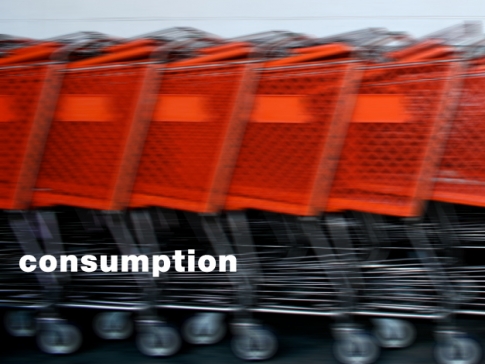But I’m no cynic and we should also recognise the tangible benefits produced by our desire for globally branded consumer products. Mostly, this includes the establishment of global monitoring systems for production, specifically in the areas of health and worker safety and environmental management. In layman’s terms, not all goods we consume are as socially decadent as they could be!
Hardly motivated by altruism, TNCs have acted because of a key underlying fear: public relations risks to profits and sales. It was for this reason more than any other that global industries acted. Via The International Chamber of Commerce and with the help of multinational consultants, TNCs developed a concept known as ‘Corporate Social Responsibility.’ CSR gathers under one great umbrella a catch phrase to reference collective societal benefits and charitable works carried out by the private sector. Their collective promise was to make CSR central to their operating strategies and thus to fulfill their responsibility to society.
This initiative was aimed at addressing the growing voices of organised labour, grassroots social activists, environmentalists, the media and civil society leaders across the world. Together, they had been expressing grave concerns about overconsumption, growing inequality and the perceived efforts of TNCs to shift work into ever lower cost countries where health and safety standards were seen as lax to non-existent.
For you and I, this means that to a greater degree than ever before, we are using the end goods – from home tools to toys to the latest five-pocket jeans – of a massive global supply chain which has been closely monitored, audited and reported on for health, safety, social and environmental impacts. These systems of ‘social accountability’ first appeared in the mid 1990s and have had two decades to evolve and mature.
That is not to say that all is hunky-dory within the plethora of industries dependent on overseas processing, labour and materials be it in apparel, mining or call centre services. Killings still happen to community activists in The Philippines. Chinese factories still keep double sets of books both for tax and labour management reasons. Environmentalists are still jailed in Latin America for standing up to mining companies. Bangladeshi textile facilities still catch fire. And, in something of a danse macabre, the whole industry of NGOs, consultants and service providers promoting CSR – including everything from factory audits to community engagement and capacity building – depends heavily on the persistence of the very issues they arose to combat.
Yet, as I said, I’m no cynic and before throwing the baby out with the bathwater, we might step back and look at the progress that has been made relative to the not-so-distant past. For most consumers today, buying into the promise of a given brand or retailer that they are a responsible business brings with it expectations that decision makers have done their best to ensure clean, green supply chains; clean of abuse and exploitation and sustainable to run. Occasionally, such as with In & Out Burger, TransFair, Costco Wholesale, expectations are met with assurances and evidence.
Sadly, in Canada, the ability to buy responsibly with a given degree of (verifiable) assurance that products are free of labour and environmental abuses or health risks is not yet a given. For example, over the past few years, Canadian authorities have trailed their U.S. counterparts in taking actions to limit lead and other heavy metals in consumer products. The E.U.’s REACH programme, requiring those who put products on the European market to ensure traceability of all chemical components upon request, is without equal here. Looking at our extractive industries, the Canadian government spent nearly ten years talking to civil society, industry reps and indigenous peoples only to come down against enacting legislative CSR requirements for our companies’ behaviour here and abroad. With that kind of (mis)leadership, we shouldn’t be expecting much of Canadian companies.
Having spent most of my adult life outside of Canada, it has been interesting to watch the changes in international perceptions regarding our reputation. Where once we were known for our social democracy, our support for non-aligned countries and as a signatory to environmental agreements like The Kyoto Protocol, more recently our cultural tastes, politics and neo-mercantilist policies have been compared to those of our American cousins. This certainly has something to do with a ragingly right-wing government but that only tells part of the story.
Ultimately, unless consumers like you and I demand that companies address our wants and unless we insist that our government regulate them into action, few companies will do what’s needed to provide us with more socially or environmentally responsible products or services. It is not in their nature. Arguably, neither is it in ours as a country to accept anything less. Or at least that was the case once upon a time. {w}
Michael Lavergne
Michael Lavergne is a sustainable supply chain consultant. He has twenty years of experience across the developing world with both NGOs and multinational brands and has recently returned home to Canada following a six year stint in Asia.

